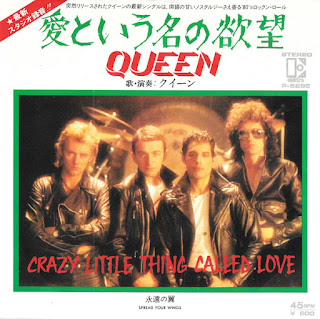WHAM! - FREEDOM
Publicació: 1 d’octubre de 1984
Regne Unit #1 (3 setmanes)
El duo britànic Wham! va consolidar el seu èxit mundial amb “Freedom”, inclosa a l’àlbum “Make it Big”. La cançó, que parla d’un amor ferit però incondicional, va esdevenir el seu segon número u al Regne Unit, reforçant la popularitat del grup en el panorama pop dels anys 80.
Amb una lletra que expressa una ferma determinació de no abandonar una relació malgrat les dificultats, “Freedom” esdevé un himne a la lleialtat i al compromís. Segons va revelar George Michael en una entrevista a The Big Issue l’any 2009, la composició d’aquesta peça va ser un punt d’inflexió en la seva carrera: “Quan vaig escriure ‘Freedom’ amb 19 anys, vaig pensar: ‘No em puc creure que hagi fet això!’ Va ser llavors quan vaig començar a prendre’m seriosament com a compositor”, va explicar.
El 1985, Wham! va fer història en convertir-se en el primer grup pop occidental a actuar a la Xina. Encara que la cançó no tenia contingut polític, es va utilitzar material del viatge per crear-ne el videoclip, donant-li un context visual global. El vídeo, que comença amb imatges de la vida quotidiana xinesa i declaracions del grup, va topar amb la voluntat de MTV, que preferia versions més breus. Tot i així, el mànager Simon Napier-Bell va insistir a mantenir la introducció i MTV va acabar emetent el videoclip complet.
Crítiques com les de Cash Box van elogiar la cançó per la seva “veu plena de matisos R&B i una tornada irresistible”, mentre que Billboard la va descriure com “un tribut al so Motown”.
George Michael tornaria a abordar el concepte de llibertat uns anys més tard, el 1990, amb Freedom ’90, una nova cançó que simbolitzava la ruptura amb la imatge que havia cultivat durant la seva etapa amb Wham! i en els primers anys de la seva carrera en solitari.
WHAM! - FREEDOM
Released: October 1, 1984
UK: #1 (3 Wks)
“Freedom” is a hit song by British pop duo Wham!, featured on the album “Make it Big”. The song, which speaks of a love that has been hurt but remains unconditional, became their second number one hit on the UK Singles Chart.
With lyrics expressing a firm determination not to give up on a relationship despite the hardships, “Freedom” became an anthem of loyalty and commitment. As George Michael revealed in a 2009 interview with The Big Issue, writing the song was a turning point in his career: “When I wrote ‘Freedom’ at 19, I thought, ‘I can’t believe I just did that!’ It was then that I started taking myself seriously as a songwriter,” he explained.
In 1985, Wham! made history by becoming the first Western pop act to perform in China. Although the song had no political content, footage from the trip was used to create the music video, giving it a more global visual context. The video, which begins with images of everyday life in China and statements from the band, clashed with MTV’s preference for shorter versions, but manager Simon Napier-Bell insisted on keeping the intro, and MTV eventually aired the full video.
Critics like Cash Box praised the song for its “R&B-tinged vocals and irresistible chorus,” while Billboard described it as “a Motown tribute.” George Michael would revisit the concept of freedom a few years later, in 1990, with Freedom ’90, a new song symbolizing his break from the image he had built during his time with Wham! and in the early years of his solo career.





















